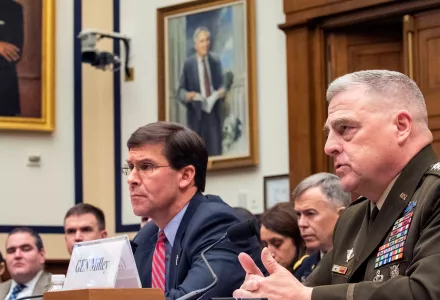
Abstract
An influential model of democratic civil-military relations insists that civilian politicians and officials, accountable to the public, have "the right to be wrong" about the use of force: they, not senior military officers, decide when force will be used and set military strategy. While polls have routinely asked about Americans’ trust in the military, they have rarely probed deeply into Americans' views of civil-military relations. We report and analyze the results of a June 2019 survey that yields two important, and troubling, findings. First, Americans do not accept the basic premises of democratic civil-military relations. They are extraordinarily deferential to the military's judgment regarding when to use military force, and they are comfortable with high-ranking officers intervening in public debates over policy. Second, in this polarized age, Americans' views of civil-military relations are not immune to partisanship. Consequently, with their man in the Oval Office in June 2019, Republicans—who, as political conservatives, might be expected to be more deferential to the military—were actually less so. And Democrats, similarly putting ideology aside, wanted the military to act as a check on a president they abhorred. The stakes are high: democracy is weakened when civilians relinquish their "right to be wrong."
Ronald, Robert Ralston and Aaron Rapport. "No Right to Be Wrong: What Americans Think about Civil-Military Relations." Perspectives on Politics, (2021): 1–19, doi:10.1017/S1537592721000013.
The full text of this publication is available via Perspectives on Politics.







